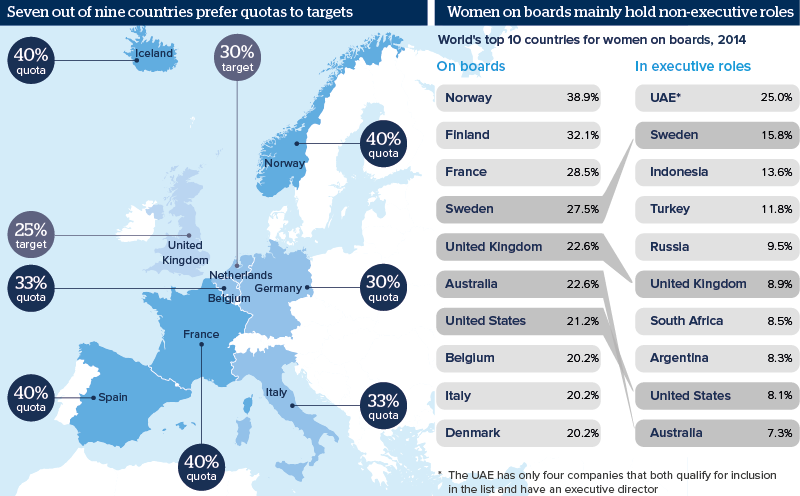Board diversity may give Europe an edge in talent war
Countries, not the EU, lead the trend in Europe to improve corporate governance by boosting gender diversity on boards

Source: European Commission, Catalyst, Egon Zehnder, Oxford Analytica
Outlook
EU legislation requiring that women hold 40% of non-executive board seats, or comprise 33% of all directors, by 2020 (2018 for state-owned firms) is stuck in the European Council. If passed, this legislation would affect an estimated 5,000 out of 7,500 companies in the EU -- although none would face sanctions for failing to meet the directive.
Several European countries have forged ahead to improve gender balance in company boardrooms, whether through quotas or voluntary targets -- reflecting both a growing trend to overhaul corporate governance and national preferences about how to achieve this.
Impacts
- Sweden and the United Kingdom do not have quotas and feature in the top 10 countries for women on boards and female executive directors.
- Women hold mainly non-executive directorships; the number of women executive directors remains extremely low.
- To increase the number of 'boardable' women, firms are developing internal talent and working with headhunters to widen shortlists.
- Companies that make an effort to attract and develop female staff may have an edge in the global talent war.